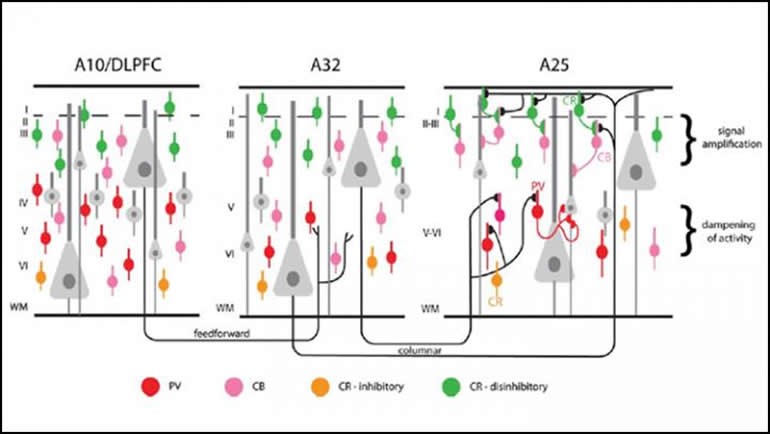Tuesday, 9 March 2021
Two very different approaches to identify functional connections between brain areas
 Two recent studies have shown yet again that many more different parts of the brain are often involved in a given mental phenomenon than was once believed. In the brain, nothing is really isolated, and there are no “centres” of anything. Instead, we’re always dealing with multiple interconnected areas of the brain that form networks as demanded by the situations faced or the tasks to be performed. What’s most interesting about these two particular studies is that the researchers used two very different approaches to identify functional connections between brain areas: in one study, they visually traced the path of the axons projected by certain neurons, while in the other, they used genetic methods to isolate a new kind of membrane receptor. (more…)
Two recent studies have shown yet again that many more different parts of the brain are often involved in a given mental phenomenon than was once believed. In the brain, nothing is really isolated, and there are no “centres” of anything. Instead, we’re always dealing with multiple interconnected areas of the brain that form networks as demanded by the situations faced or the tasks to be performed. What’s most interesting about these two particular studies is that the researchers used two very different approaches to identify functional connections between brain areas: in one study, they visually traced the path of the axons projected by certain neurons, while in the other, they used genetic methods to isolate a new kind of membrane receptor. (more…)
Emotions and the Brain, Memory and the Brain | Comments Closed
Monday, 6 October 2014
Poverty Imposes a Cognitive Burden on the Brain

Neuroscience is providing growing evidence that poverty can have serious consequences not only for the health of people who are “struggling to make both ends meet” (something that has been known for a long time), but also on their cognitive abilities. The most recent of these studies looking specifically at this aspect of poverty was published in the journal Science in August 2013 by economist Anandi Mani and her colleagues.
Using two different approaches, this research team reached the same conclusion: for people at the low end of the socioeconomic spectrum, everyday life requires so much calculation and effort just to meet basic material needs (food, shelter, etc.) that it exhausts their mental capacities. (more…)
From Thought to Language | Comments Closed







